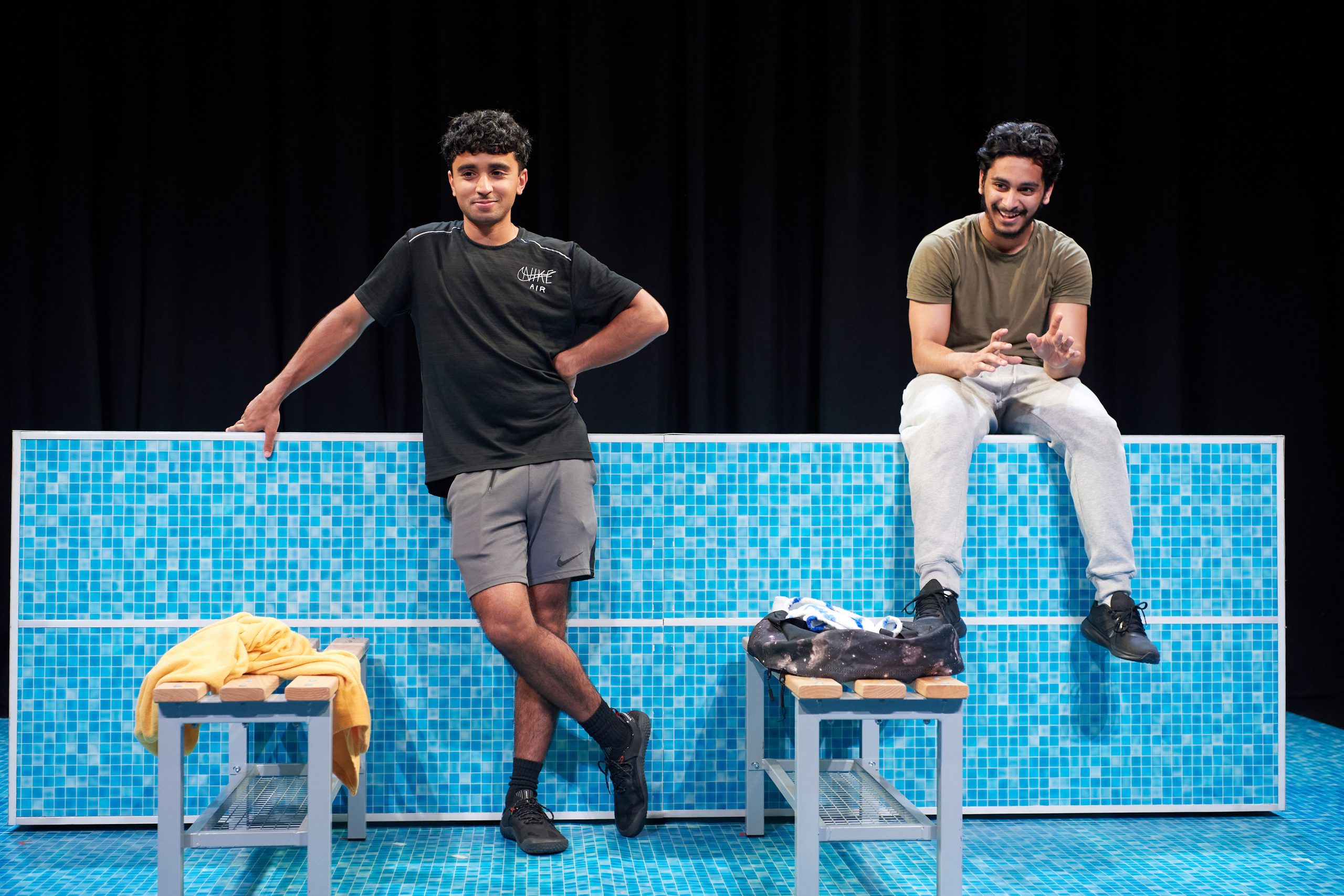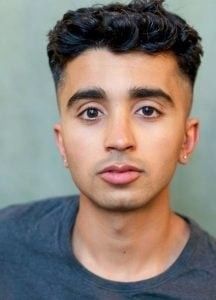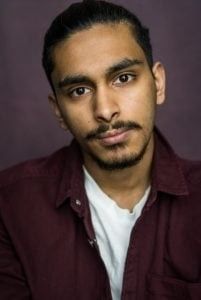- Monday, May 06, 2024
Kashif Ghole and Ibraheem Hussain dive straight into the deep end in their debut roles in the coming-of-age play, Brown Boys Swim

By: Sarwar Alam
YOUNG actors Kashif Ghole and Ibraheem Hussain dive straight into the deep end in their debut roles in the coming-of-age play, Brown Boys Swim.
The pair play the lead roles of Mohsen and Kash, teenagers ready for university; but, before that, they’re desperate to get into the biggest pool party of the summer.
Among the obstacles they will have to overcome is the fact that neither of them knows how to swim.
“As children of immigrants, no one has ever taken them to the beach, the pool or encouraged them to take swimming lessons because it wasn’t something that Asian families really did,” Hussain told Eastern Eye.
“Things are changing now. My uncles taught me how to swim when I was quite young. All my cousins know how to swim. My family made it a priority to get the kids in the pool so they can learn how to swim. These boys (Mohsen and Kash) have been denied that.”
Mohsen and Kash’s desire to learn to swim leads them to tackle expectations, societal pressure, prejudice and systemic racism that can “push people along a relentless current”.
“In the play, swimming is like a metaphor for not fitting in. We spoke about this with (writer) Karim Khan – how water is like a symbol for freedom,” said Hussain.

“One of the inspirations for the play is (Oscar winning film) Moonlight. And you can see in that film how you can flow through water and fit in. When you step into the sea, you feel bliss, it’s peaceful.”
Set in Oxford, the play looks at communities who are consciously and unconsciously forbidden from spaces like pools – where microaggressions are a sign of something more insidious.
Research in 2020 by Sport England found that 95 per cent of black adults and 80 per cent of black children in England do not know how to swim, with the corresponding figures for Asians at 93 per cent and 78 per cent, respectively.
“Growing up, Mohsen and Kash felt like they didn’t belong in swimming pools,” said Hussain. “When they go to the pool to learn to swim for the first time, my character, Mohsen, he’s very sensitive to the fact that there’s people just giving him looks and staring at him. In a place like Oxford, in the swimming pools, there’s literally no one that looks like us, it’s like we don’t feel like we belong.”
The play deals with identity and the idea of what a “brown boy” should be in terms of the way they live their lives.
However, both Ghole and Hussain said the characters they play are geared towards emphasising that not all brown people are the same and that each person has their own set of unique characteristics.
“Mohsen is very conscious about people staring at him. Kash is also getting the stares, but he’s more of a showman. He likes the eyes. He likes everybody watching him. He knows that these are not friendly eyes staring at him, but he’s of the mindset that “you’re going to keep looking, so I might as well enjoy myself’,” said Ghole.
Hussain added: “Mohsen and Kash argue about how a brown boy should be. But in reality, there’s no right answer. Every young brown person’s experience of religion, of culture, of family, growing up in Britain is so nuanced.

“The audience will see parts of themselves in both characters. But, maybe, they’ll gravitate more towards one. It’ll be interesting to see.”
Both actors are Muslim and play characters of that background. There are scenes in the play they could relate to – such as when the character of Kash is torn between drinking alcohol in order to fit in and increase his chances of being invited to the pool party.
“That definitely goes against our faith,” said Ghole, who revealed he would avoid some events at drama school due to the drinking culture.
Hussain, 23, and Ghole, 22, said the scene is a reflection of the struggle they often face when it comes to identity.
Hussain is the son of Pakistani parents who grew up in Halifax. Ghole’s parents came from India and he grew up in London.
“There’s been times where people have asked me where I am from and I say I am Indian. But, then, I become conscious of myself and say I was born here. I’m Muslim. But my mum and dad are from India,” said Ghole.
“The reason why I say I am Indian is because my family is from there, the colour of my skin and because my mother tongue is a mix between Hindi and Urdu.
“Sometimes it gets a bit of a blur, especially when I was younger, but I still struggle with it. I’m Indian, but I am also Muslim, but I was born and bred in London.”
Hussain’s own experiences at drama school shaped his thinking about fitting in and he stopped looking at himself like an “outsider”. “I stopped looking at people who are not Muslim or not brown as ‘others’,” he said. “Two of my best friends in drama school were non-Muslims and not brown.
“I remember, actually, one of my Muslim friends said to me, ‘not all skin-folk are kinfolk’. This was after I came to London and met couple of brown people, but we weren’t really gelling and I was getting really stressed.
“I realised I needed to start looking more deeper, at a value level. Just because someone’s not Muslim, they can still believe in god, if they have values like family, honesty and integrity, then we’ll get along and we’ll be good friends.”
A previously acclaimed adaptation of Brown Boys Swim was performed at the Edinburgh Festival Fringe last year and won the prestigious Popcorn Award and The Scotsman’s Fringe First Award.
Asked if they felt nervous about their version of the play, both Hussain and Ghole said they were confident in their abilities, which they said comes from seeing Riz Ahmed and Idris Elba pave the way for them.
Ahmed has an indirect connection to the play. The writer, Karim Khan, was a recipient of Riz Ahmed’s Left Handed Films and Pillars Fund inaugural The Pillars Artist Fellowship which champions and mentors Muslim directors and writers.
“I remember I was 16 and I saw a Star Wars film and saw Riz Ahmed. I just thought, ‘wow, there’s a brown brother in a Star Wars movie, I can do that as well’,” said Hussain.
“He also speaks about representation and belonging and how art reflects the society you live in and it makes people feel like they’re a part of something.
“That was one of the first times I got this really intense feeling and I kind of went down this rabbit hole of trying to figure out how to start acting.”
Hussain said the next step is to break the mould of what stories Asians can be a part of.
“I just saw a film called The Harder They Fall – an all-black western. I’m a big fan of stylised films, sci-fi films and superhero films. I was blown away by an all-black Western,” said Hussain.
“We’re going in a very exciting direction. That could be us soon. It will be us soon. Why can’t we have an all-Asian space film? Stories are stories. Everyone should be allowed to have fun with it.
![]()